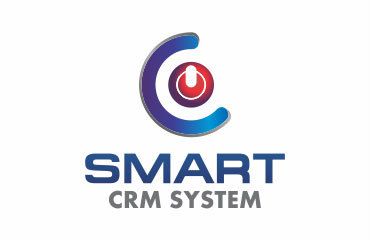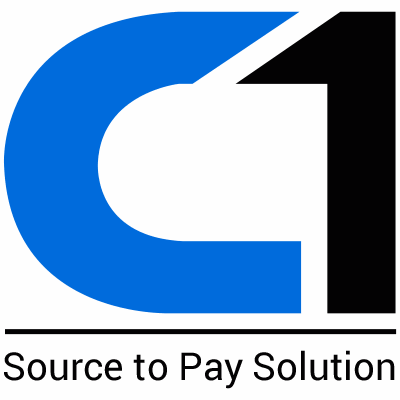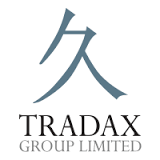What Is Tender Management Software?
Tender management software is a specialized application that simplifies the process of creating, managing, and submitting tenders or offers for goods and services. This program enables businesses and organizations to manage their tendering processes more efficiently, from soliciting bids to reviewing offers, thereby saving time and resources. One of the software's main advantages is the ability to create and alter tender documents.
This enables customers to establish their requirements, set timelines, and provide guidance to potential vendors. This not only ensures uniformity and correctness in tender submissions, but also helps vendors comprehend and meet the requirements. Tender management software also streamlines the process of distributing and accepting bids.
It allows users to construct online bid portals via which interested vendors can view and submit proposals. This eliminates the need for physical copies and improves communication between buyers and potential suppliers. One of the primary benefits of adopting tender management software is the ability to automate chores and processes.
This involves setting automatic deadline reminders, scoring and evaluating bids, and creating thorough reports. These qualities not only improve efficiency, but also limit the possibility of errors and bias during the tendering process. Security and confidentiality are also key concerns in the tendering process, and tender management software solves them through secure data storage and role-based access.
This ensures that only authorized workers have access to important information, and that all data is secure against potential breaches. Finally, most tender management software integrates with other tools and systems, including project management, CRM, and accounting software. This enables firms to effortlessly integrate their tendering process into their overall operations, resulting in a more efficient workflow.
What Are The Recent Trends In Tender Management Software?
Tender management software, often known as procurement software, has become an indispensable tool for businesses of all sizes and industries to streamline the tendering process. Tender management software's features and capabilities have evolved significantly as technology has advanced.
We will go over the most recent trends in tender management software that you should be aware of as a possible buyer.
1. Cloud-Based Solutions: One of the rising trends in tender management software is the move to cloud-based solutions. Buyers may use cloud-based software from any device or location, making it easier to interact and manage tenders remotely. Cloud-based solutions provide scalability, cost-effectiveness, and seamless connection with other tools.
2. AI-Powered Solutions: Artificial intelligence (AI) is automating tender administration operations such as document and data extraction, supplier identification, and bid review. AI-powered tender management software analyzes data and gives insights to help make better decisions, lowering the chance of errors and speeding up the process.
3. Integration With E-Procurement Systems: Many modern firms use e-procurement systems to streamline their purchasing procedures and increase productivity. The new trend in tender management software is to integrate with these systems, allowing for a smooth flow of information from tender requests to purchase orders.
4. Teamwork And openness: In today's corporate environment, teamwork and openness are essential for effective tender administration. Top tender management software has capabilities that allow internal and external stakeholders to engage in real time, giving total visibility into the tendering process.
5. Mobile Access: With the advent of remote work, having mobile access to tender management software has become increasingly important. Many vendors now provide mobile apps or responsive web designs that allow customers to access the system via smartphones and tablets, ensuring productivity on the go.
6. Customization And Personalization: Because each organization has different tender management requirements, vendors are increasingly offering customizable and personalized solutions that may be tailored to the individual demands of the buyers. This trend enables purchasers to customize the software to their own operations, resulting in a more efficient and intuitive user experience.
Benefits Of Using Tender Management Software
Tender management software is a strong tool that simplifies the complex and time-consuming process of managing tenders. This program automates and centralizes the whole tender process, from drafting and publishing tender announcements to receiving and analyzing bids, making it a useful asset for any company looking to purchase goods or services from vendors.
Here are some of the major advantages of adopting tender management software:
1. Time-Saving: One of the primary benefits of adopting tender management software is the reduction in time spent handling the entire tender process. Businesses can dramatically minimize the time and effort necessary for tender management by implementing automated elements such as template creation, bid evaluation, and real-time data tracking.
2. Increased Efficiency: Manual tender management systems are prone to human mistake and can be quite time-consuming. Tender management software simplifies operations including creating tender notices, submitting bids, and selecting vendors, resulting in more efficient and accurate results.
3. Centralized Data: Tender management software consolidates all tender-related data into a single location, making it easy to access and monitor. This not only saves time, but also ensures that all team members have access to the most recent information, resulting in improved cooperation and decision-making.
4. Better Organization: Tenders can be complex, with several stakeholders and paperwork. Tender management software keeps firms organized by offering a single platform for storing and managing all tender papers, correspondence, and duties.
5. Cost-Effective: Manual tender management systems involve significant resources, including time and people. Tender management software dramatically minimizes these costs, making it an affordable choice for companies of all sizes.
6. Improved Security: Tender management software includes strong security features that ensure all important tender-related information remains confidential. This lowers the likelihood of data breaches and guarantees compliance with security standards.
7. Improved Communication: The ability to communicate with suppliers via software makes tender administration more streamlined and efficient. Businesses may quickly share and receive clarifications and updates, resulting in improved communication and a more efficient tender process.
8. Real-Time Analytics: Most tender management software has real-time analytics capabilities, which provide firms with useful insights into the tendering process. This allows organizations to make data-driven decisions and continuously improve their tender tactics.
Important Factors To Consider While Purchasing Tender Management Software?
When selecting tender management software, it is critical to carefully evaluate several criteria to ensure that you are making the best investment for your company.
Here are some crucial considerations to consider while buying tender management software:
1. User Interface And Ease Of Use: The program should have an intuitive interface that is simple to explore and comprehend. It should not necessitate substantial training or technical knowledge to use, as this can be time-consuming and expensive.
2. Customizable Features: Because each organization has distinct requirements, it is critical to select tender management software that allows for feature modification to fit your individual demands. This ensures that the software is suited to your specific business processes and operations.
3. Integration Capabilities: The program should work easily with other systems and tools you already use, such as project management, accounting, and document management software. This will help to streamline operations and increase overall efficiency.
4. Security Measures: Because tender management involves the handling of sensitive information, it is critical to select software that includes strong security features. To safeguard your data from cyber threats, look for features like user access limits, encryption, and data backup.
5. Reporting And Analytics: A decent tender management software should provide comprehensive reporting and analytics features. This allows you to track the status of your tenders, evaluate data, and make informed decisions based on insights.
6. Mobile Compatibility: As remote work becomes more popular, having mobile-compatible tender management software can be extremely useful. It enables you to access and work on tenders from any location, at any time, enhancing flexibility and efficiency.
7. Customer Support: It is critical to select a software vendor that provides dependable customer service, including technical assistance and regular program upgrades. This ensures that you have access to assistance if you experience a problem or have inquiries.
When choosing tender management software, consider these aspects to make an informed purchase that best meets your company's needs. Before selecting a software supplier, consider your budget and undertake thorough research to guarantee you receive the most value for your money.
What Are The Key Features To Look For In Tender Management Software?
The procurement process can be daunting and time-consuming, particularly when it comes to managing tender applications. Tender Management Software helps to streamline and automate the entire process. However, with so many options on the market, it can be difficult to evaluate which is the best fit for your firm.
To make an informed decision, here are the essential characteristics you should look for in a tender management software:
1. Customizable Workflows: The flexibility to tailor workflows to your organization's specific requirements is critical. It ensures that the software is compatible with your specific procedures, minimizing disruptions or modifications to your current operations.
2. Centralized Database: A centralized database including all tender-related information is required. It removes the need to switch between systems or manually enter data, saving time and lowering the risk of error.
3. Document Management: Managing a large number of documents is critical during the tendering process. Look for software that allows you to upload, save, and organize documents in a systematic way, making them easy to access and share with key stakeholders.
4. Collaboration Tools: Tendering frequently involves multidisciplinary teams, and good collaboration is critical to its success. Look for software that has collaboration options like dashboards, chat, or comments sections to improve communication and teamwork.
5. Online Submission: The ability for suppliers to submit their bids online is a big advantage. It eliminates the need for physical submissions, which saves money and makes the process more easy for all sides.
6. Evaluation And Scoring Tools: The software should have tools to assist with the evaluation and scoring of tender submissions. Look for software that lets you create evaluation criteria and automates the scoring process, making it more objective and efficient.
7. Compliance And Security: Tender processes are frequently subject to stringent compliance standards. Look for software that performs compliance checks and ensures data security via encryption and access controls.
8. Reporting And Analytics: Real-time data insights are critical for making sound decisions. Look for software that has reporting and analytics tools, like as dashboards and visualizations, to help you measure performance and find areas for development.
9. Compatibility And Integration: Select software that is compatible with your current systems and integrates effectively with them. It means that you can continue to use your favorite tools while taking use of the tender management software.
10. User-Friendly Interface: Last but not least, the software's interface should be simple to use and require little training. It will ensure adoption while also improving the efficiency and convenience of the tendering process.
Why Do Businesses Need Tender Management Software?
Tender management software is an essential tool for firms, particularly those that frequently participate in procurement and bidding processes. It is intended to make the entire tender process more efficient, structured, and transparent.
Let's explore, we'll look at the numerous reasons organizations require tender management software and how it may help them.
1. Centralized Document Management: Tender management software offers firms a centralized platform for storing and managing all tender-related documents. This removes the need for manual documentation, lowers the danger of lost or missing documents, and saves organizations time and effort when looking for certain documents.
2. Streamlined Procedure: Managing bids can be a difficult and time-consuming procedure with several stakeholders and stages. Businesses can use tender management software to automate many of these operations, including document generation, bid evaluation, and vendor communication, resulting in a more streamlined and efficient process.
3. Improved Collaboration: Tender management software enables collaboration among tender process parties such as procurement teams, project managers, and vendors. It enables real-time communication and updates while ensuring that all stakeholders are on the same page, encouraging transparency and accountability.
4. Improved Vendor Management: One of the most important aspects of the tender process is choosing the correct vendor. Tender management software allows organizations to construct a database of vendors and their previous performance, making it easier to analyze bids and choose the best bidder for the project.
5. Adjustable Templates: Tender management software has adjustable templates and forms that companies can use for various sorts of tenders. This not only saves time, but also assures that the tender documentation is consistent and accurate.
6. Cost Savings: Investing in tender management software can result in significant savings for firms. Businesses can decrease the administrative and operational costs of tender management by automating duties and streamlining processes.
7. Compliance And Transparency: Tender management software assures compliance with legislation and company policy by keeping an auditable record of the whole tendering process. It also encourages transparency by allowing stakeholders to track the tender's development and view all pertinent papers.
How Much Time Is Required To Implement Tender Management Software?
The time necessary to install tender management software varies based on a number of factors, including your organization's size and complexity, the type of software you select, and the level of customisation needed. On average, it can take between a few weeks and a few months to fully develop and integrate the program into your existing systems.
To ensure a smooth and efficient deployment, a dedicated team responsible for the transition must be in place, as well as tight collaboration with the software vendor. This team should comprise essential stakeholders from a variety of areas, including procurement, finance, and technology. The first step in installing tender management software is to assess your organization's present processes and find opportunities for improvement.
This will allow you to modify the program to your individual needs and streamline the tender management process. Next, the software provider will collaborate with your team to establish the appropriate infrastructure and train your employees on how to utilize the product efficiently. This may include data migration, system configuration to meet your current process, and user permissions and access levels.
Once the software has been installed and validated, it is critical to provide comprehensive training to all users to ensure they are accustomed and comfortable with the new system. This will reduce any disruptions and ensure a smooth transition. It is also important to remember that installation is a continuous process, and your team may have a learning curve as they adjust to the new system. As a result, it is advised that you have a support structure in place to handle any queries or issues that may occur.
What Is The Level Of Customization Available In Tender Management Software?
When shopping for tender management software, you should examine the level of customisation offered. Customization allows you to adjust the software to your individual needs and operations, increasing its efficiency and usability. So, what level of customization could you expect from tender management software? First and first, it is crucial to remember that the level of customization possible varies depending on the software.
Some software may have a vast range of customization possibilities, but others may have fewer options. It is critical to assess your organization's requirements and prioritize the customisation options that are most relevant to you. One of the most popular customization options in tender management software is the ability to add and alter fields. This enables you to gather particular information related to your organization's procurement procedure.
For example, you could want to include fields for project deadlines and budget information. Another aspect of customisation to consider is the ability to design personalized workflows. This allows you to automate your buying process based on your organization's specific requirements. You may tailor the steps in the tender process, allocate duties to certain team members, and establish approval processes.
Reporting and analytics are important customizing elements to consider. A decent tender management software should have configurable reports that allow you to track and evaluate data like the number of bids received, the average bid value, and bid success rate. This enables you to gather vital information and make data-driven decisions.
Some tender management software also includes branding customization, which lets you to put your organization's logo and colors to the interface. This results in a more tailored customer experience while also ensuring brand continuity. Finally, some software provides API integration, allowing you to interface the program with other tools and systems used in your organization. This can increase the level of customization and streamline the buying process.
Which Industries Can Benefit The Most From Tender Management Software?
Tender management software is an invaluable resource for organizations of all sizes and industries that frequently engage in the tendering process. However, certain industries will benefit the most from this software.
Let's explore, we'll look at which sectors can gain the most from tender management software and how it can help them improve their tendering processes.
1. Government Agencies And Public Sector: Organizations: Government agencies and public sector organizations frequently participate in complex and highly regulated tendering processes. They must adhere to tight criteria and meet specific requirements to guarantee the bidding process is fair and transparent. Tender management software can help these firms streamline the tendering process by automating routine activities, maintaining regulatory compliance, and offering a single platform for all parties to engage.
2. Construction And Infrastructure Companies: The construction and infrastructure business is highly competitive, with large-scale projects requiring several vendors, subcontractors, and suppliers. Managing tenders, bids, and contracts for such projects can be challenging. Tender management software can make this process easier by providing a single platform for document management, bid evaluation, and contract management. It also enables real-time communication and collaboration among all parties involved, which increases efficiency and reduces the possibility of errors.
3. IT And Professional Services Companies: IT and professional services firms frequently work on fixed-price contracts, necessitating a thorough understanding of project needs and timetables. Tender management software can assist these organizations in preparing accurate and competitive bids by offering capabilities such as bid analysis, cost estimation, and project planning. With a streamlined approach and a full view of all bids and contracts, these organizations can make more informed decisions and increase their chances of winning tenders.
4. Healthcare Businesses: Tender management software can be a game changer for healthcare businesses, which frequently deal with a huge number of suppliers and vendors of medical equipment, medications, and other goods and services. These firms can use this software to monitor their vendors' performance, manage contracts, and verify compliance with industry laws. It also allows them to negotiate better deals and lower prices, which benefits patients and the healthcare system as a whole.
5. Retail And Consumer Goods Corporations: rely on tendering to stock their shelves with products from a variety of worldwide suppliers. These firms can benefit from tender management software since it automates the bidding process, compares numerous bids, and generates cost analysis reports. With improved operations, these businesses may enhance their vendor relationships, negotiate better agreements, and eventually provide competitive pricing to their clients.
Conclusion
Finally, investing in tender management software can significantly help your organization by streamlining the procurement process, enhancing productivity, and saving critical time and resources. You may choose the best software that corresponds with your business goals and objectives by taking into account crucial criteria such as your specific demands, budget, and available features. Remember to properly investigate and compare various software possibilities, and take advantage of free trials to ensure that the program matches your needs.
Consider the customer assistance and training alternatives provided by the vendor to guarantee a smooth and effective installation. Finally, deploying tender management software can boost your organization's competitiveness and help you win more bids. With the correct tools in place, you can easily manage your tender process while focusing on producing high-quality submissions that stand out from the crowd. So don't delay; start researching the various software options available and take your procurement process to the next level.


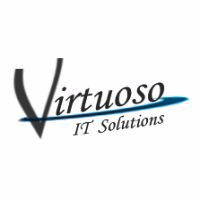





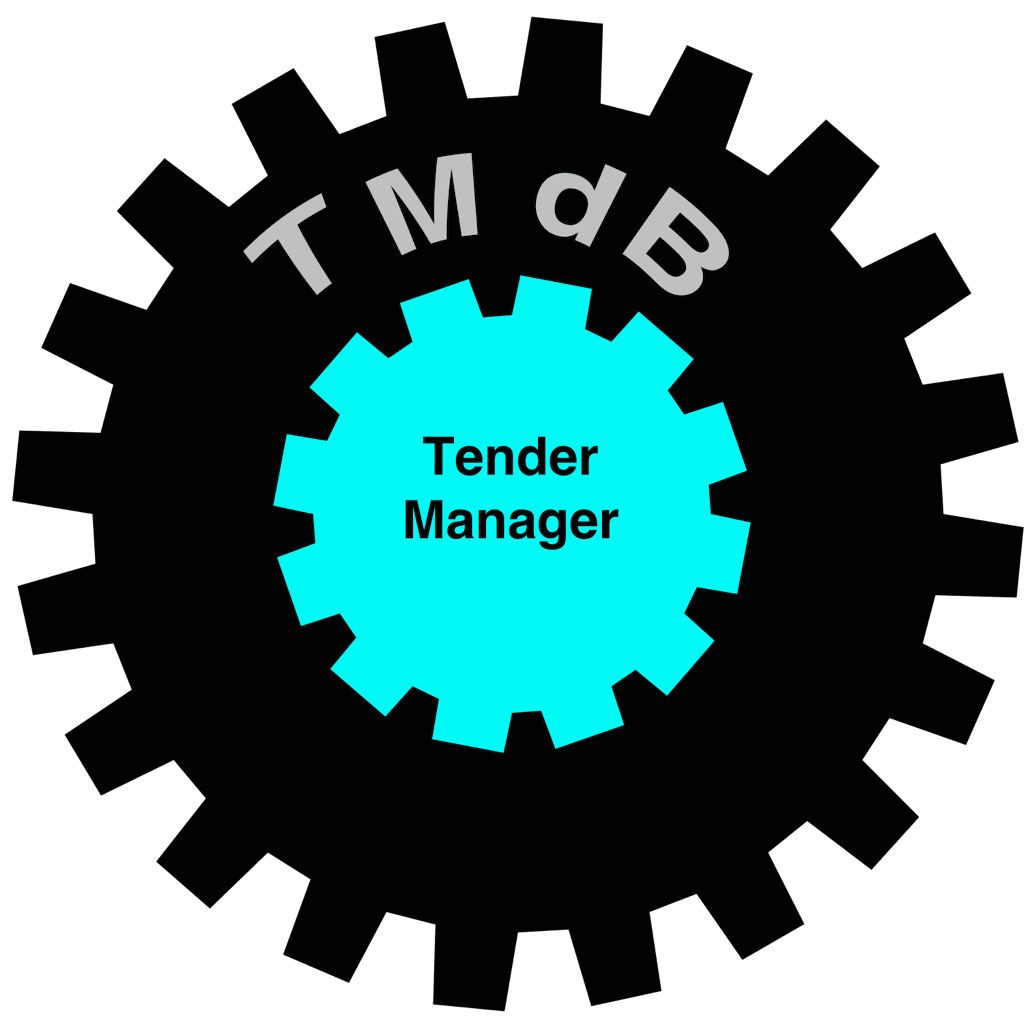
-logo.jpg)

